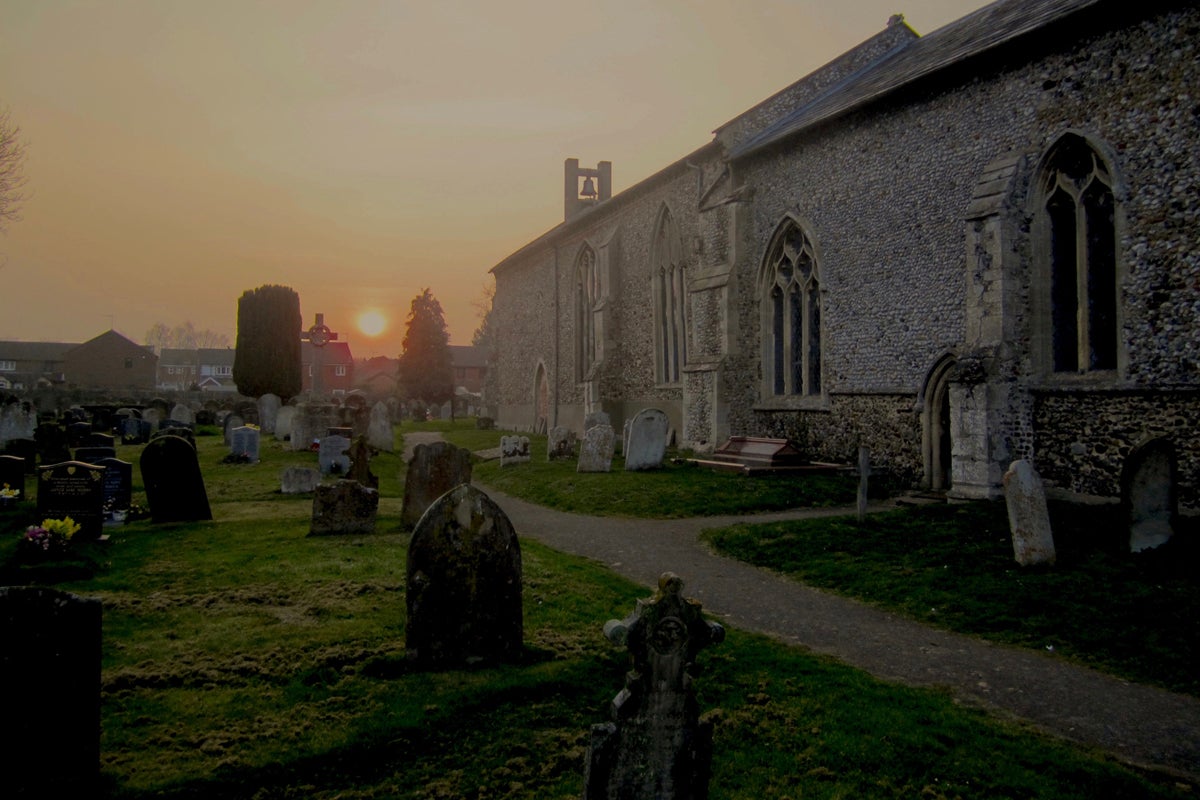The Independent's journalism is supported by our readers. When you purchase through links on our site, we may earn commission.
What do water cremations mean for our humanity?
We can’t stop the biological processes of disintegration and decay, writes Ros Clarke. But we can control what happens around those processes


Ashes to ashes, dust to dust… liquid to liquid?
The rollout of a third option to cremation and burial – “water cremation” – has flooded the news recently. The process, known officially as “resomation” – where a body is placed in a sealable, biodegradable bag and dissolved in water and potassium hydroxide – is considered a more environmentally friendly funeral option.
The question of what to do with dead bodies is not a new one. People have always died, and their bodies need to be treated in a way that is safe, hygienic, and respectful. What exactly that is has varied according to custom, belief, climate and science.
Cremation is one of the oldest known ways of dealing with dead bodies. It was common in the Neolithic era, and all the way through to the Roman empire. It remains standard practice for Hindus and is usually carried out within a very short space of time after death. In Europe, however, once Christianity became the dominant religion in the early medieval period, cremation was replaced by burial. Cremation actually remained illegal until 1885.
Burial, unlike both traditional cremation and this new method of water cremation, retains the dead body more or less intact for as long as possible. That was preferred by early Christians because of their belief in the resurrection. A person whose body and soul were separated at death, would be raised to new life, in which both body and soul would be restored. Of course, it was thought, this meant that the body should be preserved, so that it could be raised intact.
These Christians had strong faith in the resurrection, but not such a good scientific understanding of physical bodies.
Human bodies are biodegradable. Whether they are buried, burned, or dissolved in lye through this new method of water cremation, our bodies will disintegrate. We are wonderful, complex organisms – but we are made out of the same chemical building blocks as the rest of the universe.
Atoms and molecules combine to generate skin and hair, blood and plasma, bones and muscles. And yet those same atoms and molecules combine in billions of different ways so that every one of us is human and every one of us is unique.
Bodies are brilliant, but most people recognise that we are something more than our bodies. Christians refer to this as a soul, or sometimes a spirit. You might not call it that. Maybe you think of it as your inner being, your personality, or even yourself. It is the part of you that feels emotion and the part of you that wakes in the night with brilliant ideas. It is your instinct. Your centre. Your unique being.
Increasingly, there is a tendency to emphasise the importance of this inner being, and downplay the significance of the body. For some people, bodies are just a convenient biological container for a person, but they are not fundamental to the person themselves: “I am who I am despite my body”; “My body is not me”; “My body does not define me.”
There’s a fundamental flaw in this logic, of course. Brains are body parts. Brains are physical. Our feelings and emotions, our thoughts and ideas are all inherently embodied in the neuron transmitters and cells which make up our brains. Scientists don’t understand a lot about brain function – and I certainly make no claim to understand this – but we know that the physical activity in our brains correlates with the mental and emotional activity of ourselves. We cannot, even hypothetically, separate ourselves from our bodies.
Not until we die, of course.
The dead body no longer has an inner being. There are no thoughts and feelings being processed in the brain of a dead person. And yet, the body of a dead person is more than a random collection of cells and chemicals, ready to throw on the compost heap. The body was a part of that human being who lived and died. Their body deserves to be treated with care and dignity. It is still a human body, and it matters to our humanity that we are honoured even after death.
We can’t stop the biological processes of disintegration and decay. But we can control the human processes around those. We can ensure that human bodies are not processed like animal carcasses. We can ensure that grieving families and friends know that the bodies of their loved ones are being treated respectfully. Because that body is a precious and important part of their loved one.
I don’t think it matters what scientific processes contribute to the decay of the physical body. The Christian belief in the resurrection doesn’t depend on the preservation of a biodegradable body. But it does matter to us all that our humanity is honoured and valued, in our physical bodies as much as in our inner selves.
Ros Clarke is the associate director of Church Society and the author of HUMAN: Made and Remade in the Image of God (IVP, 2023)






Join our commenting forum
Join thought-provoking conversations, follow other Independent readers and see their replies
Comments